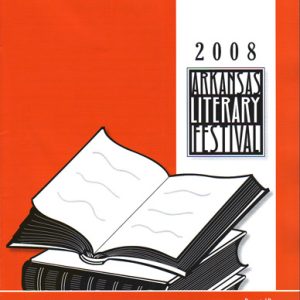calsfoundation@cals.org
Arkansas Literacy Councils (ALC)
The mission of Arkansas Literacy Councils (ALC), located in Little Rock (Pulaski County), is to “Empower Arkansas through Literacy” by supporting local, nonprofit literacy councils throughout the state. The councils recruit and train volunteers from the community to tutor adults who want to improve their basic reading, writing, and math skills.
The National Literacy Act (Public Law 102-73 of July 25, 1991) defines literacy as “an individual’s ability to read, write, and speak English, and compute and solve problems at levels of proficiency necessary to function on the job and in society, to achieve one’s goals, and develop one’s knowledge and potential.” Exact numbers on illiteracy rates are difficult to calculate because of the extent to which adults consider themselves literate. According to the 2000 U.S. Census, Arkansas had over 1,993,031 residents eighteen or older. Of this number, 491,000, or almost twenty-five percent, did not have a high school diploma, and 170,420 had less than an eighth-grade education. Though a lack of a diploma does not mean a lack of literacy, countless statistics show that, without a diploma, a person’s ability to adequately complete day-to-day tasks for themselves, their families, and their employers is greatly diminished.
The volunteer adult literacy movement was popularized in the early twentieth century by Frank C. Laubach, a Christian missionary. While in Africa, he saw hopelessness in villages that were impoverished, mainly because of high rates of illiteracy. He rallied fellow missionaries to teach people to read in their native languages. Upon returning to the United States, he created a nonprofit organization, Laubach Literacy International (now ProLiteracy Worldwide), and created a “Laubach Way to Reading” curriculum that is widely used today.
Many churches in America embraced Laubach’s example by establishing volunteer adult literacy councils to help their communities. By the mid-1960s, Arkansas had three councils in Fort Smith (Sebastian County), Fayetteville (Washington County), and Little Rock. In 1971, individuals from these councils and others incorporated ALC as the state organization to provide training, an annual conference, and other means of support to strengthen existing councils and create new ones.
The creation of ALC facilitated the establishment of other literacy councils in the state, with approximately thirty having been formed since ALC’s incorporation. Today, ALC serves over fifty literacy councils throughout Arkansas. It provides guidance and technical assistance in areas such as volunteer tutor training, fundraising, local office operations, curriculum materials, and nonprofit organizational development. It also works closely with the state’s adult education system and other organizations to help network services. In an effort to raise awareness of adult literacy and the need for volunteers, ALC began the annual Arkansas Literary Festival in 2002, the only festival of its kind in the nation where proceeds support nonprofit adult literacy programs, though management of it shifted in 2008 to the Central Arkansas Library System. The annual event was renamed the Six Bridges Book Festival in 2019.
For additional information:
Arkansas Literacy Councils, Inc. http://www.arkansasliteracy.org (accessed January 25, 2023).
Marie Clinton Bruno
Arkansas Literacy Councils
 Arkansas Literary Festival Program
Arkansas Literary Festival Program 




Comments
No comments on this entry yet.